President's Message: Summer's Here!
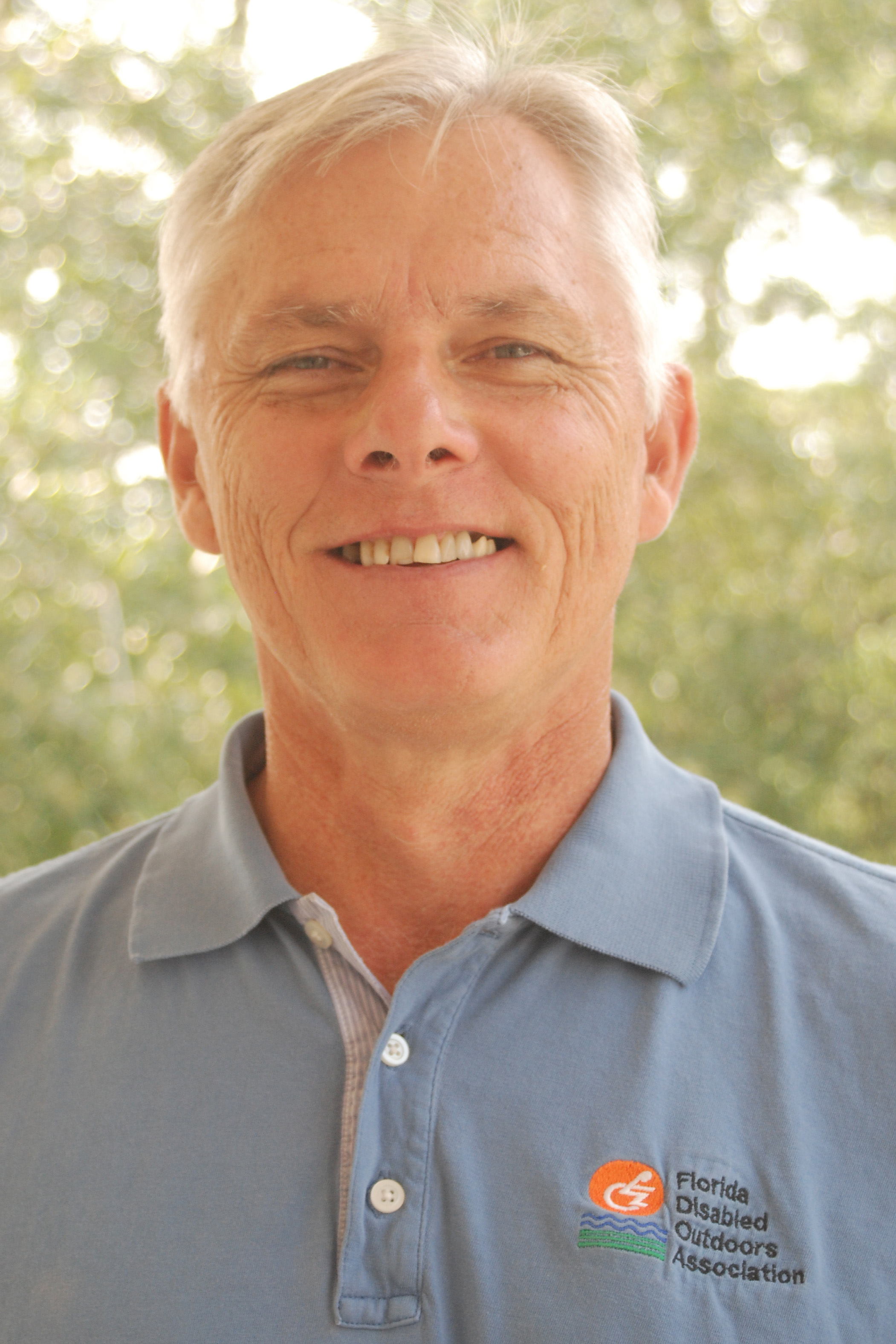
Things are heating up here in Florida! Folks are making their plans to head to the beach as the summer season approaches. Statistics from the Statewide Comprehensive Outdoor Recreation Plan (SCORP) tells us that 63% of our residents report that salt water beach activities is their top chosen outdoor recreation activity and it is also the top choice for our tourists. People love the beach. People with disabilities love the beach. The physical, mental, emotional, social, and financial benefits of outdoor recreation are now well documented and support our efforts to advocate for the inclusion of people with disabilities. We will continue to help promote and provide opportunities for people of all abilities to enjoy the beach activities that we cherish so much.
Over 56.7 million people in the country has a disability. That’s almost 20% of the entire population. That’s 1 out of every 5 people. Also significant, is the fact that 2 out of every 7 families has a member with a disability. That’s almost 1/3 of the entire country. The baby boomer population is exploding and over 40% of people age 65 and up have at least one disability. 1 in 12 children, ages 5 to 20, have a disability. That’s over 5 million of our kids. Disabilities R us!
One of the biggest handicaps for people with disabilities to use the beach is a lack of physical accessibility. The recognized interest and desire for salt water beach activities along with the sheer number of people with disabilities makes a clear case that we need to place a high priority on providing beach access for all. We receive more calls inquiring about wheelchair access to beaches than any other issue. The FDOA will be working on this issue and will work with our partners to provide more and better access to our beaches statewide.
The next most favorite outdoor activities reported by our residents is of wildlife viewing and fishing. Both of these activities require a degree of access to allow choices for people with disabilities.
Access to our parks, trails, wildlife management areas (WMA), and other State outdoor recreation Lands is required by law and should be a high priority for our leadership. Speaking of WMA’s, the Fish and Wildlife Commission (FWC) quota hunt application process is now underway for the fall hunting season. We have a highly recognized, unique program for hunters with mobility impairments. We can enjoy the outdoor opportunity at quality areas and times with supportive guidelines that enhance the experience. Go to Myfwc.org for more information and to apply permits.
We also recognize that one of the biggest barriers for fishermen with disabilities is the lack of places for shore based fishing. We need to add more accessible fishing docks, piers, bridges, and waterfront areas for easier access for our residents and tourists to use. This will be another one of our priorities. We will be co-hosting the 28th annual Hands Helping Anglers fishing event in June. This is a community effort to provide a day of fishing for people with disabilities by local volunteer boat captains.
We thank all of you that help us at FDOA to help others enjoy “Active Leisure for Life”!!
Executive Director's Message: I Get by with a Little Help from My Friends
 I was lucky enough to hear Joe Cocker live sing "I get by with a little help from my friends." This song represents how Florida Disabled Outdoors Association get by. With the help of friends, we are able to host SportsAbility programs, advocate, provide training, and provide community reintegration and wellness opportunities. I was lucky enough to hear Joe Cocker live sing "I get by with a little help from my friends." This song represents how Florida Disabled Outdoors Association get by. With the help of friends, we are able to host SportsAbility programs, advocate, provide training, and provide community reintegration and wellness opportunities.
I would like to take this opportunity to thank all of you that have volunteered over the years, sponsored a program, purchased something from the silent auction or made a donation. Without you, FDOA wouldn't be here. Personally, I am extremely grateful. A special thank you goes out to our long-time parters; please help me in thanking them when you have the chance.
I hope to see you at the SportsAbilty Sampler at the Family Cafe in Orlando - Gatorland animal show, rock wall climbing, tennis, archery, hover ball, SCUBA and paddle board demos and a rubber duckie race AND it's FREE! How can you miss it?? Thank you to our friends at Gatorland for sponsoring this program!
Family Cafe info
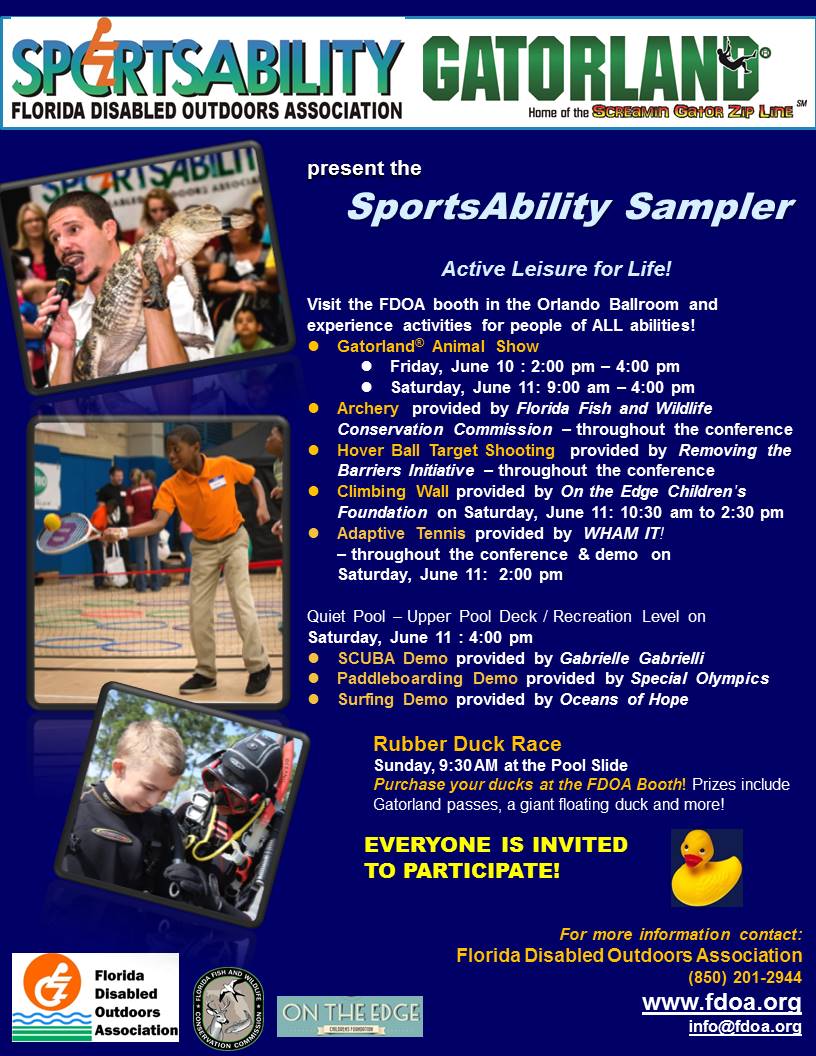
Art for ALL
including People with a Brain or Spinal Cord Injury
Dave Gussak, PhD, ATR-BC Chair
FSU Department of Art Education/Professor of Art Therapy
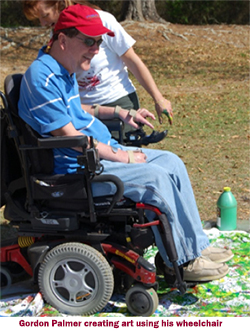 Art therapy uses art making to improve and enhance the physical, mental and emotional well-being of people of all ages and abilities. Making art helps people to resolve conflicts and problems, develop interpersonal skills, manage behavior, reduce stress, increase self-esteem and self-awareness, and achieve insight. Art therapists, who require a minimum of a master’s degree, find themselves working in numerous clinical, educational and medical programs. This includes working with people who have suffered spinal cord injuries. Art therapy uses art making to improve and enhance the physical, mental and emotional well-being of people of all ages and abilities. Making art helps people to resolve conflicts and problems, develop interpersonal skills, manage behavior, reduce stress, increase self-esteem and self-awareness, and achieve insight. Art therapists, who require a minimum of a master’s degree, find themselves working in numerous clinical, educational and medical programs. This includes working with people who have suffered spinal cord injuries.
Art therapists can work alone, or often work as part of a team, including occupational, physical and speech therapists, as well as counselors, social workers and psychologists. The art therapist understands that certain materials—ie, markers, paints, clay, etc—will bring about different desired changes and bring about healthy change. However, the idea that art making is restricted to only people with full mobility is simply not the case. Art making is so instrumental for healing, one should not be limited because of a spinal cord injury. Innovative art therapists who specialize in working with people with physical disabilities, including those with paraplegia or quadriplegia, will adapt the tools they use to make art making accessible.
An art therapist may assist the person with mobility impairment by helping lifting and guiding his or her hand. Markers, pencils and even paintbrushes may have extensions added to the handles to allow for easier maneuverability, and some have been adapted to fit in ones teeth to be manipulated by simple neck movements. Some art therapists have used the person’s wheelchair as the paintbrush, allowing the client to roll through wet paint and then rolling over large pieces of cloth or canvas—messy, to be sure, but incredibly creative and beautiful. In some cases, when a person cannot use any of their extremities, he or she may simply tell the art therapist exactly what he or she wants done on the paper or canvas, and the art therapist will follow the directions exactly—essentially, the person with such mobility issues uses the art therapist as the tool. It is clear why one of the pioneers of the field, Edith Kramer, called art therapists the “Third Hand.”
More information for People with a Spinal Cord Injury:
English / Spanish
More information for People with a Brain Injury:
English / Spanish
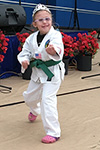 Help Support FDOA Programs - Donate Now Help Support FDOA Programs - Donate Now
FDOA gratefully accepts tax deductible donations and in-kind gifts as a 501 (c)(3) nonprofit organization. (Federal ID# 59-3051552)
|
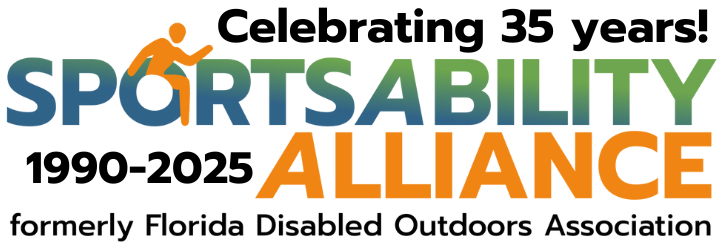

 I was lucky enough to hear Joe Cocker live sing "I get by with a little help from my friends." This song represents how Florida Disabled Outdoors Association get by. With the help of friends, we are able to host SportsAbility programs, advocate, provide training, and provide community reintegration and wellness opportunities.
I was lucky enough to hear Joe Cocker live sing "I get by with a little help from my friends." This song represents how Florida Disabled Outdoors Association get by. With the help of friends, we are able to host SportsAbility programs, advocate, provide training, and provide community reintegration and wellness opportunities.
 Art therapy uses art making to improve and enhance the physical, mental and emotional well-being of people of all ages and abilities. Making art helps people to resolve conflicts and problems, develop interpersonal skills, manage behavior, reduce stress, increase self-esteem and self-awareness, and achieve insight. Art therapists, who require a minimum of a master’s degree, find themselves working in numerous clinical, educational and medical programs. This includes working with people who have suffered spinal cord injuries.
Art therapy uses art making to improve and enhance the physical, mental and emotional well-being of people of all ages and abilities. Making art helps people to resolve conflicts and problems, develop interpersonal skills, manage behavior, reduce stress, increase self-esteem and self-awareness, and achieve insight. Art therapists, who require a minimum of a master’s degree, find themselves working in numerous clinical, educational and medical programs. This includes working with people who have suffered spinal cord injuries. Help Support FDOA Programs -
Help Support FDOA Programs - 
